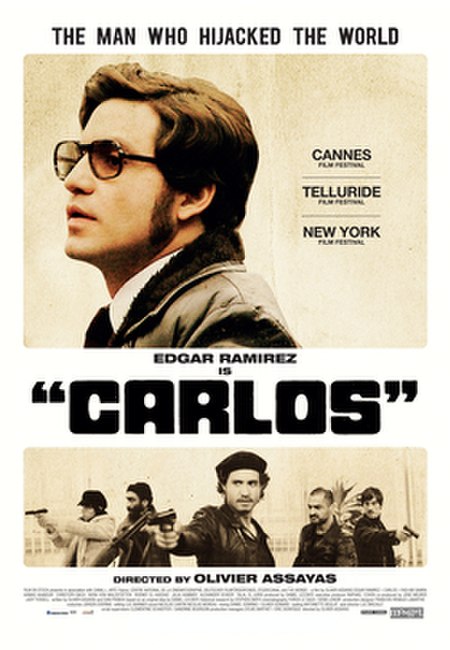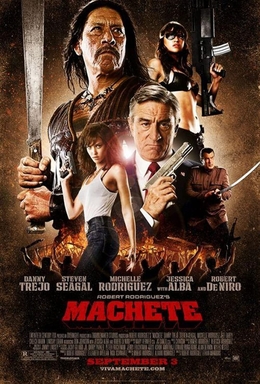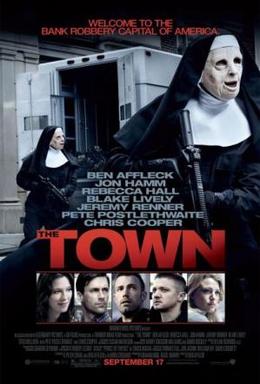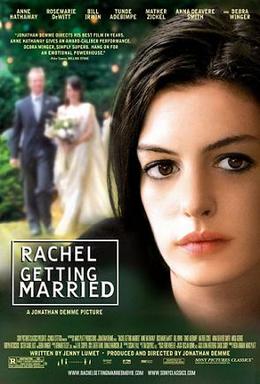For most people, there are moments of happiness, and moments of sorrow, and the rest of the time there is the momentum of the past, or nothing.
The mind that seeks more moments of happiness outwardly (via sex, money, intoxication, distraction) can be said to be neurotic. Most therapists would agree.
The mind that looks for a permanent bliss inwardly (through the various kinds of delusions, meditations, inner awareness, dismantling of one's psyche, and so on) is neurotic in a very different way.
Perhaps the balance between the inner and the outer, being a continued effort of learning and adjusting, is the solution. But it is a dynamic solution, requiring continued effort, not something which can be formulated once and for all, and for everybody.
To have a mind which is interested in things other than itself, which finds joy in others (even things), and at the same time, which is capable of reflection and change, is perhaps most suited to a fulfilling and happy life.
To have both inner and outer goals, to want something both for oneself and for someone else, to have a healthy psyche and a comfortable home, to have love in one's heart and also to have loved ones, to learn from self-observation as well as from what others say, to have an eye which can look both within and without, to have questions as well as answers, to have lips as well as ears, to know, and to know that there is still more to know, to take delight in solitude as well as in others' company, to create as well as to consume, to be a giver as well as to be a recipient, ...
There is no ONE solution to life's problems because life is vast, and any solution which seems to solve everything is an excision, an exclusion, an escape. To live with the knowledge that there will be problems as well as solutions, that there will be suffering and sorrow and joys and regrets and attachments and heartaches and kindness and cruelty and all that, to be with oneself knowing that one is imperfect, to be with others accepting them in their mild imperfections, but to still want to be a little better, to still want others to continue their journeys to be better, while not expecting final perfection...
To understand that perfection is meaningless because one is always in interaction, that one is not an island at all, that because there are myriad hues and colors and touches and feelings and situations that one comes across there is no meaning to being a-priori perfect and thinking that one has achieved one's destiny, that life is dynamic and any label about oneself which is absolute is bound to be torn asunder by time, that an eye which is fixated, either on the inner or the outer, becomes a stone eye and goes blind.
And that sight is worse than blindness which believes it has seen it all.
An alive eye is that which keeps moving. Which turns inward at times, pops out of its sockets at something outward at times, goes asleep at times, tries on different goggles, dilates and gets wet at times, and remembers to wink once in a while...
Spiritualists have traditionally condemned extroversion, and introversion has been pooh-poohed by those who believe there is but one earthly life to live. Perhaps the solution is not a rejection of both, but an embrace of both.
To exclusively focus neither on one's own navel, nor on the belly dancer's. But perhaps, to be interested in both.
Wednesday, December 29, 2010
Films Seen Recently
Black Swan (Darren Aronofsky, 2010): A standout performance by Natalie Portman in an otherwise humdrum exploration of "corruption of the soul" (synonymous with growing out of puberty, mostly). The ballet cinematography is interesting, but only the final sequence evokes a "wow", and that too possibly due to the special effects. Some startle moments (with a loud sound, groan) cheapen the film. Long back I read that Movement IV in Vangelis' El Greco is about Corruption and Innocence, but that is a matter of interpretation. Vincent Cassel's surprise joy when he is spontaneously kissed in the end was a little theatrical. Is he supposed to be a hardened libertine or not?

127 Hours (Danny Boyle, 2010): Stellar cinematography, a pulsing score, a great performance, a tight script, and based on a true story. What more can one ask for? But there is more. Like in Touching the Void (Kevin MacDonald, 2003), the end of the film evokes strong feelings of elevation. It is not nearly the same film as Into the Wild (Sean Penn, 2007) because this time the protagonist actually knows somethings. And who could guess that this film would end up being a critique of narcissism? "That scene" is done expertly. Nerve-shattering, literally.

The Social Network (David Fincher, 2010): The various networks, the class hierarchy, and then the invention of an addiction. I appreciated the technical accuracy of the putting together of FaceMash. "wget -A" in a mainstream film, for crying out loud! Justin Timberlake's performance was a breeze of fresh air, I thought. The protagonist is more a series of fumbling acts than a character. And where are the parents? I didn't want it to end, though.

Winter's Bone (Debra Granik, 2010): It is a vignette of life in a particular region. The story for me was secondary. It was the backdrop, the culture, the mise-en-scene which was far more enjoyable. Of course the main actress is a peach, and I loved the little sister. The story felt made-up though. The ending, too convenient. It was, once again, the small details of the film, which remain etched in my memory. A few examples: the way the little sister wakes up her brother in the beginning; the way the auctioneer speaks (by the way, the ne plus ultra of auction voices is in Herzog's Stroszek); the plopping down on the bed, with the baby in the middle, while visiting her friend. An experience.

Carlos (Olivier Assayas, 2010): A long take on an exceptional individual and on his relationships, with echoes of The Baader Meinhof Complex (Uli Eidel, 2008). The politicians are crafty, but human. The terrorist is an enigma. Deluded? Driven? Daring? I saw the long, 330 minutes full version.

Frozen River (Courtney Hunt, 2008): Ultimately a lesser film than Winter's Bone, I thought. It is meant to be a thriller, though. With a standout scene when she volunteers to surrender, this film didn't leave much of an imprint. The phone recording sequence was a stroke of genius while the baby episode seemed more like a trick.

The Company Men (John Wells, 2010): The CEOs and execs are people too! America will be great again. I almost expected Michael Bolton's When I'm back on my feet again in the end credits. What an angelic wife Rosemarie Dewitt's character is though. She seems to have read everything by John Gray.

Machete (Robert Rodrigues & Ethan Maniquis, 2010): Now here's a film for all you highbrow folks. The high point of the film: the vehicles groveling at the gates, towards the end. Amazingly bad. So bad it is good. Atrocious B-grade cinema at its best. You must have seen the trailer in the Grindhouse films.

The Town (Ben Affleck, 2010): An also-ran to Heat (Michael Mann, 1995). Ben Affleck acts only with his eyes, it seems. And that too, not too much. Too much botox on the face? One is supposed to empathize with these guys who terrorize others and rob banks because they came from bad neighborhoods. They are tough, see.

Greenberg (Noah Baumbach, 2010): A horror story, in a way. Essential viewing for all budding narcissists. Or for those who isolate themselves and wonder what is wrong with them. Sometimes cuts too close to the bone.

A Solitary Man (Brian Koppelman & David Levien, 2009): A tale of redemption, eh? Even the worst assholes have their reasons, no? If you have seen The Barbarian Invasions (Denys Arcand, 2003), you will know what I mean. But this is in some ways a more nuanced portrait of a man who has certain cynical views about the world. Interesting, in the end.

Wall Street 2 (Oliver Stone, 2010): Meh. Over-acted. Over-directed. Over-researched. Under-whelming.

Rachel Getting Married (Jonathan Demme, 2008): Some of the confrontations looked staged and contrived. But Anne Hathaway deserves all the accolades that she got for her acting. The drive back from her mother's place was done in a harrowing and realistic manner. Addiction is a problem, but what one does to one's life while addicted is a greater regret. The multicultural spectacle was well-done, I thought, though it must have confused Americans no end to hear names of Indian dishes spoken as if they are well-known.


127 Hours (Danny Boyle, 2010): Stellar cinematography, a pulsing score, a great performance, a tight script, and based on a true story. What more can one ask for? But there is more. Like in Touching the Void (Kevin MacDonald, 2003), the end of the film evokes strong feelings of elevation. It is not nearly the same film as Into the Wild (Sean Penn, 2007) because this time the protagonist actually knows somethings. And who could guess that this film would end up being a critique of narcissism? "That scene" is done expertly. Nerve-shattering, literally.

The Social Network (David Fincher, 2010): The various networks, the class hierarchy, and then the invention of an addiction. I appreciated the technical accuracy of the putting together of FaceMash. "wget -A" in a mainstream film, for crying out loud! Justin Timberlake's performance was a breeze of fresh air, I thought. The protagonist is more a series of fumbling acts than a character. And where are the parents? I didn't want it to end, though.

Winter's Bone (Debra Granik, 2010): It is a vignette of life in a particular region. The story for me was secondary. It was the backdrop, the culture, the mise-en-scene which was far more enjoyable. Of course the main actress is a peach, and I loved the little sister. The story felt made-up though. The ending, too convenient. It was, once again, the small details of the film, which remain etched in my memory. A few examples: the way the little sister wakes up her brother in the beginning; the way the auctioneer speaks (by the way, the ne plus ultra of auction voices is in Herzog's Stroszek); the plopping down on the bed, with the baby in the middle, while visiting her friend. An experience.

Carlos (Olivier Assayas, 2010): A long take on an exceptional individual and on his relationships, with echoes of The Baader Meinhof Complex (Uli Eidel, 2008). The politicians are crafty, but human. The terrorist is an enigma. Deluded? Driven? Daring? I saw the long, 330 minutes full version.

Frozen River (Courtney Hunt, 2008): Ultimately a lesser film than Winter's Bone, I thought. It is meant to be a thriller, though. With a standout scene when she volunteers to surrender, this film didn't leave much of an imprint. The phone recording sequence was a stroke of genius while the baby episode seemed more like a trick.

The Company Men (John Wells, 2010): The CEOs and execs are people too! America will be great again. I almost expected Michael Bolton's When I'm back on my feet again in the end credits. What an angelic wife Rosemarie Dewitt's character is though. She seems to have read everything by John Gray.

Machete (Robert Rodrigues & Ethan Maniquis, 2010): Now here's a film for all you highbrow folks. The high point of the film: the vehicles groveling at the gates, towards the end. Amazingly bad. So bad it is good. Atrocious B-grade cinema at its best. You must have seen the trailer in the Grindhouse films.

The Town (Ben Affleck, 2010): An also-ran to Heat (Michael Mann, 1995). Ben Affleck acts only with his eyes, it seems. And that too, not too much. Too much botox on the face? One is supposed to empathize with these guys who terrorize others and rob banks because they came from bad neighborhoods. They are tough, see.

Greenberg (Noah Baumbach, 2010): A horror story, in a way. Essential viewing for all budding narcissists. Or for those who isolate themselves and wonder what is wrong with them. Sometimes cuts too close to the bone.

A Solitary Man (Brian Koppelman & David Levien, 2009): A tale of redemption, eh? Even the worst assholes have their reasons, no? If you have seen The Barbarian Invasions (Denys Arcand, 2003), you will know what I mean. But this is in some ways a more nuanced portrait of a man who has certain cynical views about the world. Interesting, in the end.

Wall Street 2 (Oliver Stone, 2010): Meh. Over-acted. Over-directed. Over-researched. Under-whelming.

Rachel Getting Married (Jonathan Demme, 2008): Some of the confrontations looked staged and contrived. But Anne Hathaway deserves all the accolades that she got for her acting. The drive back from her mother's place was done in a harrowing and realistic manner. Addiction is a problem, but what one does to one's life while addicted is a greater regret. The multicultural spectacle was well-done, I thought, though it must have confused Americans no end to hear names of Indian dishes spoken as if they are well-known.

Subscribe to:
Comments (Atom)
